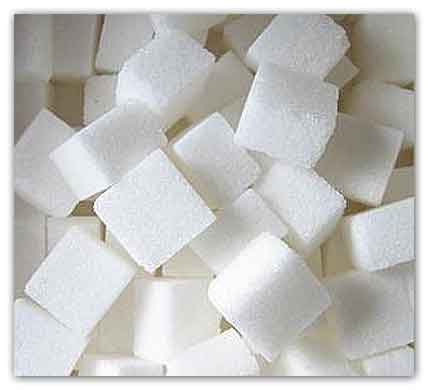|
Drinking water or unsweetened tea or coffee in place
of one sugary drink per day can reduce the risk of
type 2 diabetes, according to research published
today in the journal Diabetologia.
The study indicates that for each 5% increase of a
person’s total energy intake provided by sweet
drinks including soft drinks, the risk of developing
type 2 diabetes may increase by as much as 18%.

The research is based on the EPIC-Norfolk study,
which included more than 25,000 men and women aged
40–79 years living in Norfolk, UK. Study
participants recorded everything that they ate and
drank for seven consecutive days covering weekdays
and weekend days, with particular attention to type,
amount and frequency of consumption, and whether
sugar was added by the participants. During
approximately 11 years of follow-up, 847 study
participants were diagnosed with new-onset type 2
diabetes.
In an analysis that accounted for a range of
important factors including total energy intake, the
researchers found that there was an approximately
22% increased risk of developing type 2 diabetes per
extra serving per day habitually of each of soft
drinks, sweetened milk beverages and artificially
sweetened beverages consumed, but that consumption
of fruit juice and sweetened tea or coffee was not
related to diabetes.
After further accounting for body mass index and
waist girth as markers of obesity, there remained a
higher risk of diabetes associated with consumption
of both soft drinks and sweetened milk drinks, but
the link with artificially sweetened beverages
consumption no longer remained, likely explained by
their greater consumption by those who were already
overweight or obese.
In the new study, the authors also found that if
study participants had replaced a habitual daily
serving of soft drinks with a serving of water or
unsweetened tea or coffee, the risk of diabetes
could have been cut by 14%, and by replacing a
habitual serving of sweetened milk beverage with
water or unsweetened tea or coffee, that reduction
could have been 20%–25%. However, consuming
artificially sweetened beverages instead of any
sugar-sweetened drink was not associated with a
statistically significant reduction in type 2
diabetes, when accounting for baseline obesity and
total energy intake.
The authors acknowledge limitations of dietary
research which relies on asking people what they
eat, but their sample size was large with long
follow-up and had detailed assessment of diet that
was collected in real-time as people consumed the
food/drinks, rather than relying on memory.
For more information
O’Connor, L et al.
Prospective associations and population impact of
sweet beverage intake and type 2 diabetes, and
effects of substitutions with alternative beverages.
Diabetologia; 30 April 2015
The EPIC (European Prospective Investigation
into Cancer) Norfolk Cohort
Consumption of sweet beverages and type 2 diabetes
incidence in European adults: results from EPIC-InterAct.
http://www.ncbi.nlm.nih.gov/pubmed/23620057
MDN |